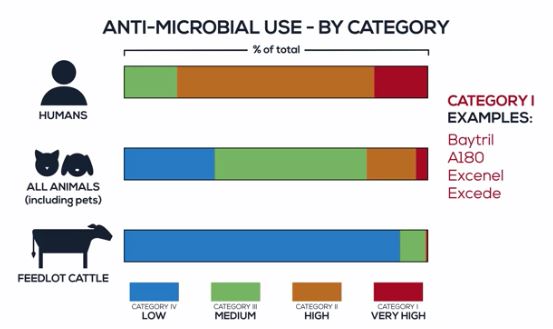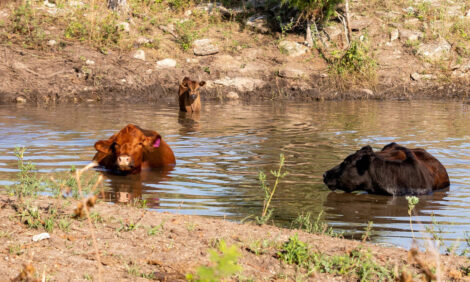



What Canadian Cattle Producers Need to Know About Antimicrobial Use
ANALYSIS - The effects would be huge to the cattle industry if antimicrobials were not available for use, said Bryan Thiessen, farm manager at Namaka Farms Incorporated in Canada.The reason antimicrobials are used is to minimise sickness within the cattle herd, he said.
“At the feedlot, most of the antimicrobials are due to sicknesses that are quite contagious, so we're trying to minimise that quickly,” he said.
Mr Thiessen said they are also trying to reduce suffering and death loss in their cattle. And from an economic standpoint, they’re trying to reduce operational costs and are careful to use antimicrobials as the veterinarian prescribes or per label instructions.
Leigh Rosengren, DVM with Rosengren Epidemiology Consulting, explains that antimicrobials are a class of drugs that kill bacteria by either going in and actually killing the bacteria and then the host immune system comes in and cleans up the damaged tissue, or some antimicrobials suppress the growth of the bacteria enough that the immune system can come in and clean up the rest of them.
“In the cow-calf industry, obviously we treat individual cows when they get sick. Antimicrobials are also used in the feedlot industry. They might be used again to treat individual animals who get sick, or they might be used on arrival when the animals come to the feedlot because we know that's a very high risk time,” Dr Rosengren said.
“Often, it's more prudent and better for the animals' welfare to go in with antimicrobials ahead of them getting sick than it is to let them get sick.”
Antimicrobial resistance is a health threat that must be dealt with globally, and it affects producers both in that resistance will limit the ability to treat animals and protect their welfare. And growing resistance in the public health sphere is going to limit producers’ options and make it harder to be producers, she said.
Dr Reynold Bergen, science director with the Beef Cattle Research Council, said one of the common misperceptions is that all antimicrobials are the same, when in fact they're quite different. The important distinctions are in how important those antimicrobials are in human medicine.
There are four categories of antimicrobials:
- Category IV/Low importance - no importance in human health. This is the category that's used most extensively in beef production.
- Category III/Medium importance - drugs that are used in human medicine and they're used to treat relatively minor bacterial infections. There's a lot of alternatives so if that medium importance drug doesn't work, there's plenty of others that will work.
- Category II/High importance - used for bacterial infections and there are alternatives to those, but fewer.
- Category I/Very high importance - used for very serious bacterial infections.
“In beef cattle, less than 1 per cent of the drugs that are used are in the high and very high importance categories combined,” said Dr Bergen. “What's really important about those drugs is that if those don't work, we got nothing else.”
In the Canadian beef industry, antimicrobials from all four of those categories are licensed and registered for use.
“It's appropriate to use each class in a circumstance where the benefit to that animal or to that group of animals outweighs the risk of resistance,” said Dr Rosengren.
“It's when we're talking about those category one drugs that we need to be very, very cognisant and we need to think if the benefit to the animal is sufficient to offset the potential resistance that's then going to go and infect a person potentially with resistant bacteria.”
Producers are urged to be very cognisant of which drugs on the farm are category one and discuss with your veterinarian why and when to use them.
Due to the importance and priority placed on antimicrobial resistance and use, the Canadian Beef Cattle Research Council and the National Beef Value Chain Roundtable (BVCRT) have developed a National Beef Antimicrobial Research Strategy.




